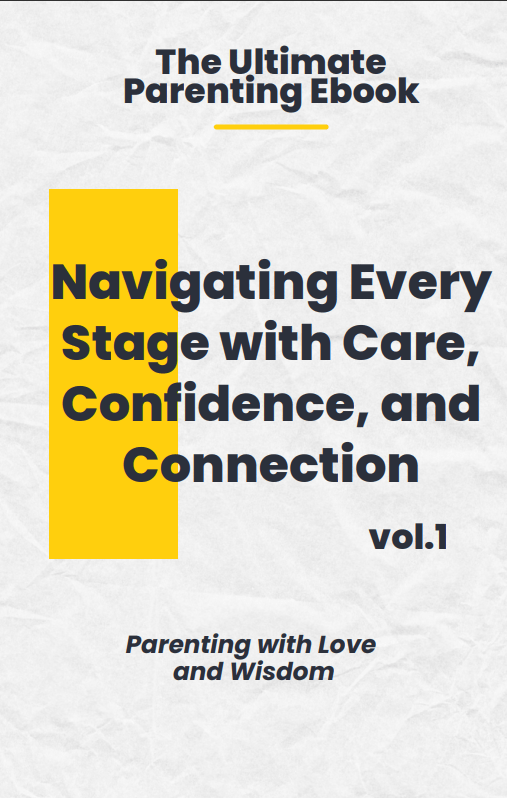
When you are homeschooling while working full-time, you already know the struggle is real. Your day feels like a nonstop race against the clock—early mornings, a full workday, house chores, and somehow finding time to teach your kids. Let’s not even mention the constant guilt: Am I doing enough? Is this sustainable?
But what if I told you there’s a better way—a solution that fits seamlessly into your busy life without leaving you exhausted? It’s called night schooling. Yes, teaching your kids in the evenings or at night is not only possible but also incredibly effective for many families. Let’s dive into how this unconventional method could be the game-changer you need.
In This Blog
ToggleThe Traditional Homeschooling Challenge
When most people think of homeschooling, they picture parents teaching during standard school hours. But if you’re a full-time working mom, those hours are already spoken for. You’re left scrambling to fit everything into an impossible schedule.
The result?
Burnout.
Frustration.
And that nagging feeling you’re failing your child.
But here’s the truth: Homeschooling while working full-time doesn’t have to mean compromising your sanity or your child’s education. It just requires thinking outside the box.
What Is Night Schooling?
Simply put, night schooling means shifting your child’s homeschooling hours to the evening or night, aligning with your availability. It’s a flexible homeschooling approach that works for parents with demanding jobs.
Instead of battling the clock, night schooling lets you teach when it works best for your family. This approach also helps you turn those precious evening hours into a productive yet bonding experience.
Why Night Schooling Works
Parents embracing night schooling often find that their kids thrive in this setup. Here’s why it works:
1. Kids Learn When They’re at Their Best
Many children are naturally more alert and focused later in the day. For night owls, evening lessons might feel less like a chore and more like a fun activity.
2. Flexible Work-Life Balance
By shifting schooling hours, you no longer have to sacrifice work productivity or quality teaching time.
3. Quality Family Time
Teaching in the evenings turns your nights into meaningful moments, strengthening your bond with your child.
4. Adaptability to Individual Needs
Night schooling is perfect if your child struggles with the rigidity of daytime schedules or prefers one-on-one learning sessions.
How to Start Night Schooling
If this sounds like the solution you’ve been searching for, here’s how to begin:
1. Evaluate Your Schedule
Take a hard look at your work and household routines. Identify blocks of time in the evening that can consistently be devoted to schooling.
2. Set Clear Expectations
Communicate with your child about this new schedule. Frame it positively—it’s an exciting, unique way to learn!
3. Plan an Evening-Friendly Curriculum
Focus on short, focused sessions that fit into your evenings. Use digital tools, video lessons, and activity-based learning to keep things engaging.
4. Utilize Online Resources
There’s a wealth of platforms like Khan Academy and Outschool offering flexible, interactive content. These tools save you time and energy.
5. Stick to a Routine
Consistency is key. While flexibility is great, a stable routine helps kids know what to expect, even during unconventional hours.
Addressing Common Concerns
You might be wondering:
“Will this mess with my child’s sleep schedule?” or “What about socializing with peers?”

Here’s how to address those concerns:
1. Sleep Patterns and Health
Night schooling doesn’t mean sacrificing sleep. Adjust bedtimes to allow your child to rest before or after lessons. For younger kids, ensure lessons don’t stretch too late.
2. Socialization Opportunities
Incorporate daytime playdates, weekend extracurriculars, or online group activities to ensure your child stays socially engaged.
3. Legal Requirements
Every state or country has different homeschooling laws. Ensure your night schooling plan complies with local regulations.
Tools and Resources to Simplify Night Schooling
You don’t have to do this alone. Here are some tools to make night schooling smoother:
- Homeschooling Platforms: Websites like Time4Learning or ABCmouse offer flexible, self-paced curricula.
- Apps: Tools like Cozi or Trello help manage schedules and lesson plans.
- Community Support: Join Facebook groups or forums for working homeschool parents to share tips and advice.
Real-Life Inspiration: Moms Making It Work
Meet Anna, a mom of two who works as a nurse. She started night schooling when her rotating shifts made traditional homeschooling impossible. “At first, I worried about my kids’ progress,” Anna says, “but they’ve actually excelled because the evenings are calm and focused.”
Another mom, Priya, works remotely during the day and teaches her son math and science after dinner. “We call it our special time,” she shares, “and it’s brought us closer together as a family.”
Avoid These Mistakes
As you begin, watch out for these common pitfalls:
- Overloading Your Schedule: Keep lessons manageable and focused.
- Skipping Self-Care: Remember, you can’t pour from an empty cup.
- Rigid Thinking: Night schooling is about flexibility—don’t be afraid to adjust your plans.
Conclusion
Balancing homeschooling while working full-time is no small feat, but night schooling offers a flexible, practical solution for busy moms. With the right approach, you can create an enriching learning experience without sacrificing your well-being.
So why not give it a try? You might just find that this unconventional approach transforms your homeschool journey—and your evenings—into something truly special.
Have you tried night schooling or considered it? Share your thoughts in the comments!
You may also be interested in : What Age Should You Start Homeschooling? Answers for Every Stage of Childhood
FAQs
1. What is night schooling for homeschooling while working full-time?
Night schooling involves shifting your child’s homeschooling lessons to the evening, after your workday ends. This allows you to balance your responsibilities effectively while providing dedicated learning time for your kids.
2. Can night schooling replace traditional homeschooling hours?
Yes, night schooling can replace traditional hours if it aligns with your family’s schedule. Many parents find that evening lessons allow for more focused and productive learning time.
3. How can night schooling benefit moms working full-time?
Night schooling allows moms to homeschool without sacrificing their full-time job. It helps in managing time effectively, creating a routine that works for both work and education.
4. How do I adjust my child’s sleep schedule for night schooling?
Ensure your child’s bedtime allows for adequate rest, even with evening lessons. Adjusting sleep schedules gradually and keeping consistent routines can help maintain a healthy sleep pattern.
5. Is night schooling effective for all children?
Night schooling can work well for children who are naturally more alert in the evenings. However, every child is different, so it’s important to assess your child’s energy levels and attention span before adopting this schedule.
6. What curriculum works best for night schooling while working full-time?
Use online, self-paced programs that can be tailored to evening learning, like Khan Academy, Outschool, or Time4Learning. These programs are flexible and offer great learning tools for night schooling.
7. How do I balance homeschooling and working full-time without burning out?
Night schooling reduces the pressure of daytime homeschooling. Organizing your time, using online tools, and sticking to a structured routine helps reduce stress and prevents burnout.
8. What tools can help manage night schooling while working full-time?
Tools like Google Calendar, Cozi, and Trello help you stay organized. Online learning platforms like Khan Academy or Outschool also streamline homeschooling tasks during night school.
9. Can I still socialize my child while doing night schooling?
Yes! Encourage playdates, weekend activities, or online group classes. Social interaction can happen outside of school hours and doesn’t have to conflict with homeschooling.
10. What are the legal requirements for homeschooling while working full-time?
Homeschooling laws vary by state or country. Ensure that night schooling complies with local homeschooling regulations by checking with your local school board or legal resources.
11. How can I ensure my child stays engaged during night schooling?
Make lessons interactive by incorporating multimedia resources, hands-on projects, and short, engaging activities. Keeping the lessons dynamic will help maintain focus and interest.
12. How do I make night schooling work if my spouse is unavailable?
If you’re managing homeschooling alone, try batching lessons, using online tutoring, or employing a homeschooling co-op. Flexibility is key in making it work effectively.
13. Can night schooling improve my work-life balance?
Absolutely! By shifting the homeschooling hours to the evening, you can focus on work during the day and dedicate quality time for learning and family in the evening, improving your overall balance.
14. How can I ensure that night schooling doesn’t affect my child’s health?
It’s important to schedule lessons so they don’t disrupt your child’s health. Ensure they have proper breaks, exercise, and consistent sleep to stay healthy while homeschooling.
15. Is night schooling more affordable than traditional homeschooling?
Night schooling is cost-effective as it reduces the need for expensive programs or tutors. Many online resources are free or affordable, and you can customize your curriculum based on your budget.




